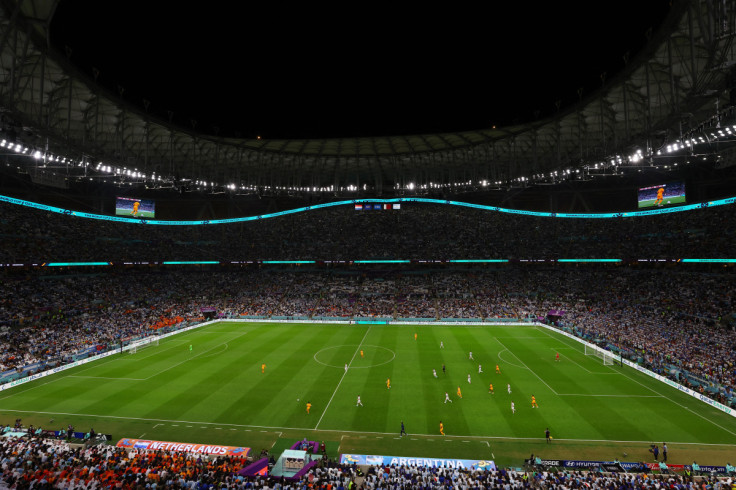Qatar's Plans For Its Billion-Dollar Stadiums

Qatar spent more than $220 billion in the 12 years preparing to host the World Cup, including $6.5 billion on constructing and renovating stadiums.
Now, Qatar is pondering what to do with eight venues.
Brazil, Russia and other previous World Cup hosts have been left with expensive and unused facilities, many falling into disrepair. Qatar's Supreme Committee for Delivery and Legacy, the government body in charge of the World Cup, vows that won't happen to the country's stadiums.
Supreme Committee's Secretary General Hassan Al Thawadi has promised in a statement to implement "innovative legacy plans to ensure our tournament doesn't leave any 'white elephants.'" Some will be reduced in capacity and others turned into residential and shopping sites.
A 47-page report from the government agency details how Qatar attempted to be as sustainable as possible in its construction of the stadiums and how they will continue to be of use following the tournament.
Qatar is the smallest country to host the tournament since Switzerland in 1954. Football fans enjoyed the proximity between venues cutting down on travel costs and the potential to see more than one game per day.
The short travel distance makes the Persian Gulf country a new potential venue for large sporting events. Qatar plans to host the 2023 Asia Football Cup after being relocated from China due to COVID-19 concerns and will hold the 2030 Asia Games. In addition, Yahoo News reports Doha is preparing a bid to host the 2036 Olympics.
Time reports not all of Qatar's World Cup Stadiums will continue to function as sporting venues. The Al Bayt Stadium will be renovated and turned into a five-star hotel. The Lusail City stadium will be repurposed into a community center and residential hub with shops, schools and a medical clinic.
Many of the top tiers in some stadiums will be removed, and stadium capacities will be reduced by half, with the excess seats being donated to low-income countries to develop their sports infrastructure.
Stadium 974 will not be seeing the next sporting tournament, as it will be deconstructed piece by piece and shipped to a country needing a pre-used sports stadium. Stadium 974 was made of 974 shipping containers designed to be deconstructed and easy to move. Al Thawadi said the stadium was a "source of pride" for the country. "It illustrates the importance of sustainability and innovation to Qatar 2022," he said.
© Copyright IBTimes 2025. All rights reserved.





















